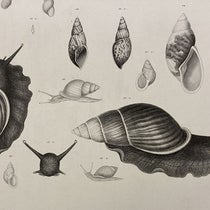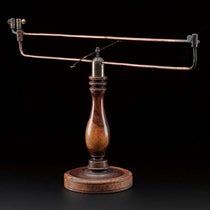Scientist of the Day - Rudolf Clausius
Rudolf Julius Emmanuel Clausius, a German physicist, was born Jan. 2, 1822. In 1847, the Englishman James Joule published an important paper in which he revealed that there is a "mechanical equivalent of heat," meaning that a certain amount of heat will produce a certain amount of mechanical work, and vice versa, suggesting that heat and work are two different manifestations of something that will soon be called "energy." The discovery that this energy persists in any interaction, and cannot be created or destroyed, would come to be called the Law of the Conservation of Energy. After Clausius, it will also be called the First Law of Thermodynamics, because Clausius discovered a Second Law – that even though the energy in any system may remain constant, that energy steadily becomes less and less available to do work.
The Second Law of Thermodynamics was announced in a paper published by Clausius in 1850 in Poggendorf's Annalen der Physik und Chemie; an English version appeared the next year in the London, Dublin, and Edinburgh Philosophical Magazine. We have both of these volumes in our serials collection. The Second Law was a thought-provoking discovery, because it introduced the notion of unavailable energy – that you can’t always get at the energy in a system. Clausius eventually coined a name for unavailable energy – he called it entropy. He offered up the term in another paper in the Annalen der Physik in 1865 (second image), and just for fun, we show you what that announcement looks like in the original German (third image). If you can spot the words Entropie and various forms of das Wort, you are getting the gist of the announcement.
The Second Law of Thermodynamics is often called the Law of Entropy. Since entropy is also a measure of disorder, another way to state the Second Law is to say that disorder in any system is constantly increasing. You can blame it, if you wish, for the state of your basement or the top drawer in your desk. And you should feel better about it, now that you know that disorder is cosmically inevitable.
If Clausius has a memorial statue or bust anywhere in the world, we were unable to find it. That seems a shame.
Dr. William B. Ashworth, Jr., Consultant for the History of Science, Linda Hall Library and Associate Professor, Department of History, University of Missouri-Kansas City. Comments or corrections are welcome; please direct to ashworthw@umkc.edu.

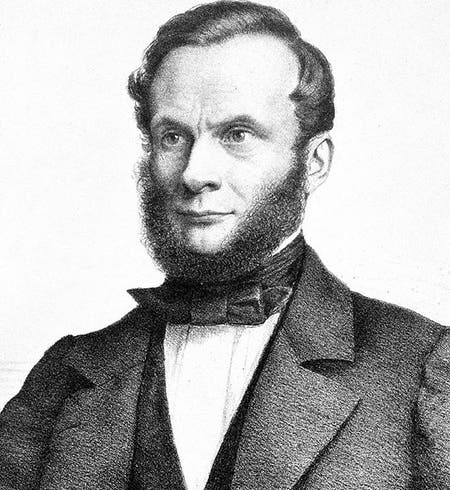
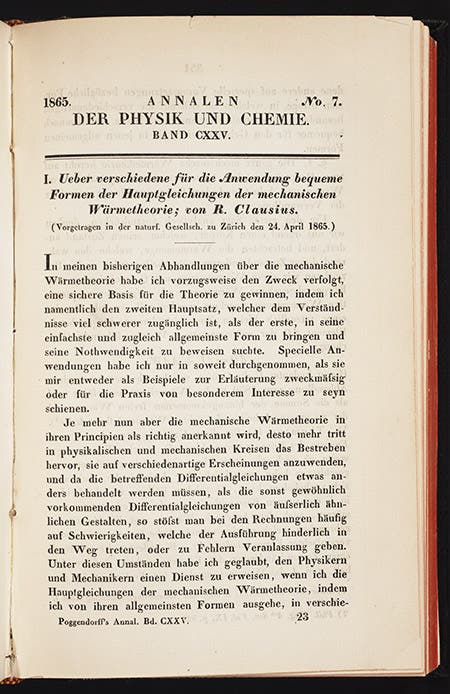
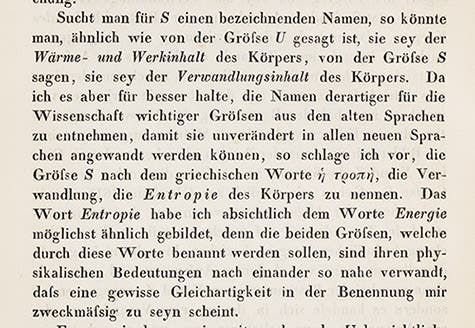
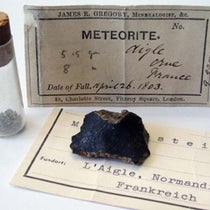
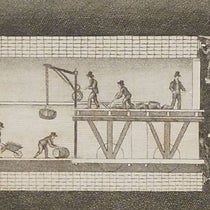
![“Aurora Borealis,” hand-colored wood engraving by Josiah Wood Whymper, [Natural Phenomena], plate 2, 1846 (Linda Hall Library)](https://assets-us-01.kc-usercontent.com:443/9dd25524-761a-000d-d79f-86a5086d4774/0245ffcb-b70c-477c-8792-0a73ebd54eb2/Whymper%2011.jpg?w=210&h=210&auto=format&fit=crop)
